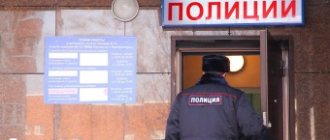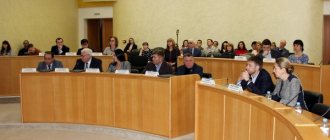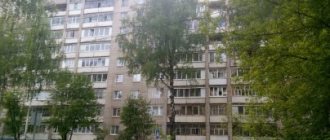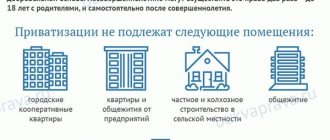LOCAL SELF-GOVERNMENT, independent (within the limits established by the constitution and laws of the state) exercise by the population of their public power on issues of local importance.
M. s. carried out directly (local referendum) or through bodies elected by the people (mayor, etc.). It is inextricably linked with the administration. division of the territory of the state and with territorial public groups of people that have developed in the administrative-territorial borders (in populated areas, regions, etc.). Territorial public collectives in municipal and regional formations (if the latter are created for local communities and are not just administrative-territorial units with officials appointed from above) are independent. public legal entities that have their own property, adopt their own budget, and themselves regulate issues of their local life within the limits established by the laws of the state (as well as the subjects of federations in federations). Organs of M. s. are not included in the system of state bodies. authorities. But they are not isolated from state bodies - they have common tasks with them, carry out acts issued by state bodies (federal subjects); State bodies provide assistance (including financial assistance) to medical authorities. and can entrust them with the implementation of some of their powers with the transfer of the necessary material resources for this. System M. s. - one of chap. factors of social stability of the state.
Local government
Executive bodies of local self-government are not just the local administration of a certain locality.
In Russia, local self-government is recognized and implemented , which has nothing in common with the federal government; it functions independently within the limits of its capabilities.
Municipal authorities are created on the principle of selection from the population. The work of the structure concerns purely individual issues, at the municipal level, they concern land relations, personal issues of citizens.
The form of power is exercised in accordance with the laws of the Russian Federation and the Constitution. The population makes decisions regarding the history and traditions of their people under their own responsibility.
The basis of such self-government is considered to be legal norms prescribed by legal acts stipulating the activities of the population in resolving economic, territorial, and financial issues. The composition of the organization is elected by the residents themselves; another option is selected and appointed by regional structures. Such an organization is a full-fledged legal entity , but it is not a part of state power.
Taking into account the specifics of the activities of such organizations, the structure and further functions are determined taking into account the needs of residents. The abbreviation of municipal executive bodies of local self-government is MSU.
Watch the video: Functions of local government
Structure
Local governments have a clear structure and strict distribution of responsibilities between departments . In different subjects of the Russian Federation, the names of individual divisions may differ, but the essence will be similar to the scheme, as it is defined by the Constitution of the Russian Federation and federal laws. This hierarchy of local power can be schematically depicted as follows:
In practice, the structure of LSG is formed according to the following stages:
- a representative body is convened,
- it is determined who will be the head,
- an administration is formed with its executive and administrative functions,
- a control committee or other structure is created.
The representative body fulfills its functions if at least 2/3 of the deputies are elected . A working collective is created according to the charter of the municipality. Their powers relate to certain areas of life: culture, sports, youth, construction, housing and communal services, education, etc. The powers of local government bodies do not go beyond the law.
Important! A representative body is a legal entity with broad rights, which is required in any local self-government. He is allowed to represent the interests of his population and make decisions on their behalf. Any decisions are made consultatively, according to regulations.
Composition of the representative body:
- chairman, deputies,
- commissions, committees.
The composition is determined by the charter and regulated by the legislation of the Russian Federation. Appointed by election by the population (district, district, settlement) or appointed by the municipality.
In a small settlement, several deputies can carry out such actions; at the municipal level, this is a whole system.
Read also: Settlement lands: what is it, category and classification
When creating the charter of a municipality, it is immediately stated whether the main official will be elected or whether this is not necessary.
His function is to lead the overall activities . The head can be chosen from the residents, from members of the representative body, or hired under a contract.
The structure of local government bodies is determined in accordance with the laws of the Russian Federation, and members are elected by municipal voting. Deputies are elected according to certain rules.
At the municipal district level the number of deputies should be more than fifteen, in the city representative body - ten or more. Deputies can be dissolved early, according to the legislation of the Russian Federation or the charter of the municipality.
Chapter
The local government system is headed by a head who is elected, appointed, and dismissed by the municipality. The head works according to the charter and resolves issues of a territorial nature.
The functional load of a chapter is determined in different ways. The head can be included in the representative system , have the right to vote, remain its chairman, or can only lead at the territorial level, performing the tasks of the head of the local administration.
In foreign countries
Municipal and regional M. s. differ. Municipal self-government exists in units that are not divided into other municipalities (usually small towns, but sometimes large cities, for example Marseille in France or New York in the USA). Regional self-government exists in large units, including several. small municipalities of the grassroots and sometimes even middle. units (for example, regions in France, including departments that consist of communes). Accordingly, in foreign countries there are several. local government systems.
In the Anglo-Saxon system (Great Britain, USA, Australia, Canada, etc.), residents of small settlements (communities, parishes, usually with a population of less than 150 people) decide local issues at meetings where people with electors have the right to vote. rights. To resolve current affairs, the meeting elects a headman (there are different names). In other adm.-territorial units, a council is elected and, by decision of the population, the mayor or a small collegial executive. organ. A hired manager paid by the council is possible.
In Romano-German. system (some countries of continental Europe), a council and a mayor are elected at the grassroots level in territorial collectives (for example, in communes in France). The mayor is then usually confirmed by the Minister of Internal Affairs. affairs, and as a government an employee, he resolves government issues. meanings that arise in the commune. But essentially the mayor is the head of M. s. In higher territorial teams (departments, regions) issues of state. values are dealt with by officials, prefects appointed by the government, and local issues are decided by elected councils and their elected executive. body - chairman of the council.
In Latin-Amer. system, the population in municipalities (there are other names) separately elects a council and a prefect (regidor, etc.), but then the prefect ex officio becomes the chairman of the council and is appointed by the government (Minister of Internal Affairs) - the representative of the state in the municipality, i.e. state. an official with great power.
In some Arabic. countries (Egypt, Syria, etc.) have elected councils, in Muslim countries. fundamentalism, the council replaces the council. Muslim organ The umma under the monarch is al-shura, but in some cities (in particular, in the cities of Saudi Arabia), partially elected, partially appointed councils have been created.
Control body
It is difficult to describe in one word what the control department of local government is. Most often, control functions are vested in one or more persons. The main activity is aimed at monitoring how the budget is spent and executed correctly, regulations are observed, and property is used. Performance reports are analyzed.
Control can be carried out in the following forms:
- initiative of citizens of a law-making nature,
- meetings,
- elections,
- vote,
- hearings,
- survey.
In large representative bodies of a municipality, control is considered mandatory . The structure gets its name based on its intended functions. These are certain departments, for example, the city’s accounting chamber, the audit commission, which will monitor the movement of funds and how the property is used.
Considering the specifics of the proposed activity, such a unit does not have a territorial level, because it is it that must exercise control over the activity.
Request through State Services
As part of the implementation of the Decree of the Government of the Russian Federation of November 10, 2020 No. 1802, from November 12, 2021, citizens have the right to send various requests to local governments through the State Services portal.
Messages can be sent using several forms of working with State Services:
- through electronic portal forms posted on the official websites of the relevant departments;
- directly using your personal account on the website or through the Gosuslug mobile application.
Reference! To be able to submit an appeal through State Services, the user must have a verified account on the portal.
Administration of the municipality
The concept of local administration refers to the executive structure, the main representative is the head of the administration. This is a specific person who is elected by the people and appointed by the authorities on a competitive basis.
The head of the administration functions as a single person or has deputies working in different areas - economic activity, sports, etc.
A legal entity deals with problems of population, property, and land. Considers possible requests and resolves them to the best of his ability.
It operates on the basis of the existing charter and state laws. The principle of operation is simple: the head issues regulations (not related to global state issues), organizes the work of the administration itself, and performs certain functions delegated by the state.
Committees are appointed to consider the economic, social, and current problems of the area. The divisions are financed by the budget of the district and region. The administration has its own personal account and is considered a legal entity. Has the right to expose property rights, representation in court.
This is interesting: Dispositive method of legal regulation - what is it?
Such a structure, taking into account what issues local government decides, includes departments, services, inspections, commissions, and sectors. Given large territories, there can be a lot of high funding for structural organizations . The composition of officials is determined at the territorial level.
What goals do self-governments face?
Considering the role of local authorities in the implementation of democracy, the main goals pursued by them become obvious. The presence of a municipality, first of all, is a guarantee of the participation of the population in resolving a number of issues in the housing and communal, social, and budgetary spheres.
Local self-government bodies are designed to provide citizens with the opportunity to independently make decisions on issues of local importance. This explains the purpose of municipal activities - to create conditions for the effective participation of the population in the life of the state, which is facilitated by the presence of elected bodies, and the use by municipalities of the institutions of direct democracy, and the maintenance of a stable material, technical and financial base for solving economic and social problems.
Every member of society who is not indifferent to the problems of their region and is ready to take an active civic position has the opportunity to send an appeal to the local administration or a certain official in the form of a written proposal, statement or complaint. In most settlements there is a “hotline” of self-government structures, which allows you to get advice on an issue of interest over the telephone. By the way, the telephone number of the local self-government body of the municipality can be found on the website of the administration of your city, village, town, or district.










